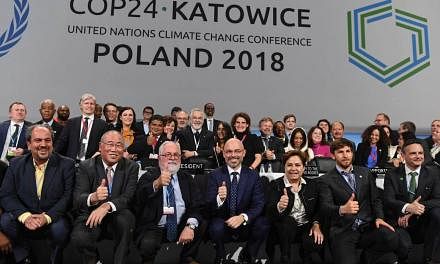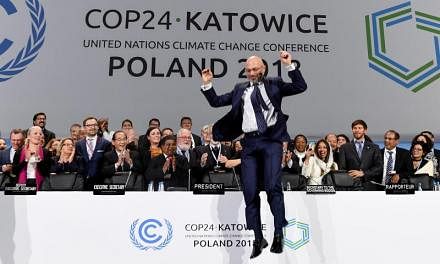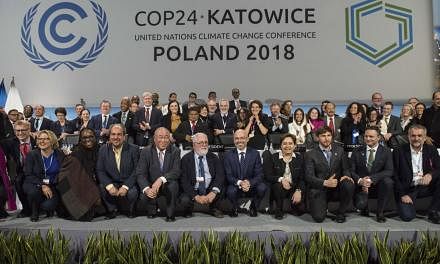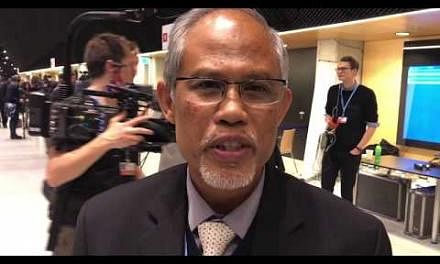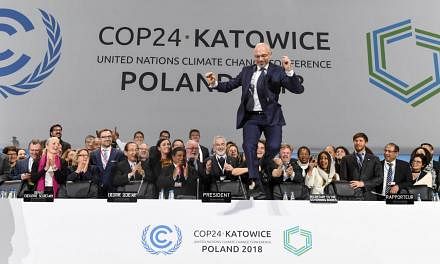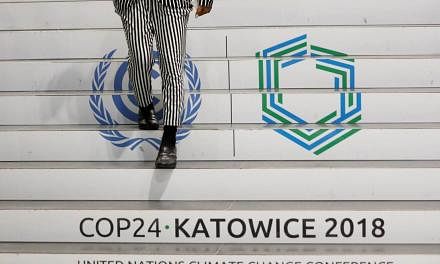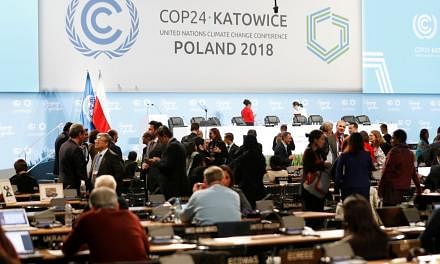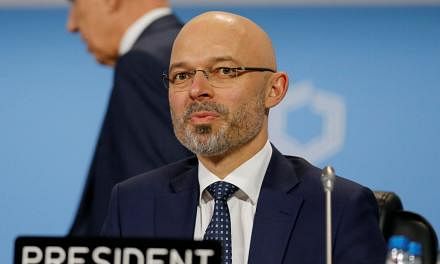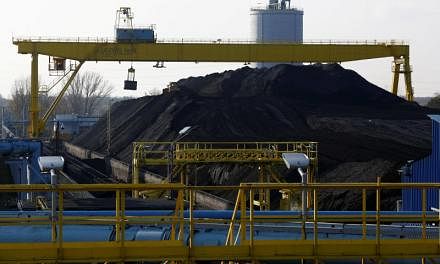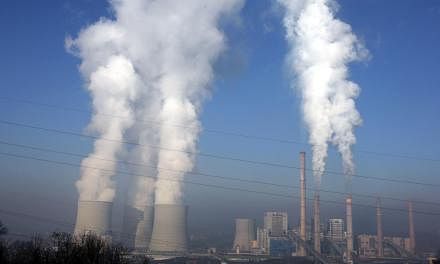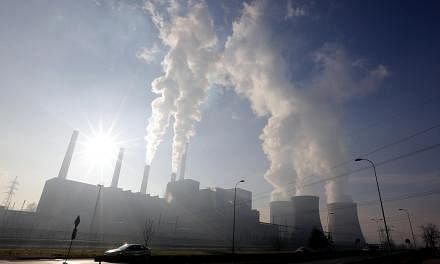PARIS • On the eve of the most important global climate meeting in years, a definitive United Nations report has found that the world is well off course on its promises to cut greenhouse gas emissions - and may have even further to go than previously thought.
Seven major countries, including the United States, are well behind in achieving the pledges they made in Paris just three years ago, with little time left to adopt more ambitious policies to curb their emissions.
"We have new evidence that countries are not doing enough," said Mr Philip Drost, head of the steering committee for the United Nations Environment Programme's (UNEP) annual "emissions gap" report, released in Paris on Tuesday (Nov 27).
That verdict is likely to weigh heavily on discussions during a UN climate meeting that starts in Poland next week, where countries are scheduled to discuss how well they are, or are not, living up to the goals set in the landmark 2015 Paris climate accord.
The UNEP report finds that, with global emissions still rising as of last year, it is unlikely they will reach a peak by 2020. But such a peak, required before any decline can occur, is a near mandatory outcome if the world is to have a chance of limiting warming to well below 2 deg C above pre-industrial levels.
"All of the science suggests that peaking by 2020 is critical," said Ms Kelly Levin, an analyst with the World Resources Institute and one of the report's lead authors. "If you miss that, we rely on much steeper reductions in the future."
Also, the report finds that the gap between countries' promises in Paris and emissions levels that would be needed to stay consistent with the accord is even larger than previously believed.
Current global emissions were 53.5 billion tonnes of carbon dioxide equivalents last year; if all countries live up to all promises made in Paris, they would also be about 53 billion tonnes in 2030.
Emissions are projected to grow with the growth of populations and economies, so under the current Paris promises, the world is running simply to stand still.
This sets the world on a path to about 3 deg C of total warming by 2100. Hence, the gap.
Emissions can be about only 40 billion tonnes annually in the year 2030 to preserve good odds of holding warming to 2 deg C. And for 1.5 deg C, they would have to fall to just 24 billion tonnes or so by that year - an extraordinarily steep plunge.
The current actions by major emitting countries are not nearly enough to prevent another half degree or more of warming. Mr Drost said: "We need three times more ambition to close the two-degree gap, and five times more ambition to close the 1.5-degree gap."
In calling for dramatically more action in a very short period of time, the new report matches the dire verdict reached last month by scientists who are part of the UN's Intergovernmental Panel on Climate Change. It said that global emissions must be cut sharply, and that this must happen in just 12 years, by 2030, to preserve a chance of limiting temperatures to a rise of 1.5 deg C.
The Group of 20 nations account for 78 per cent of global emissions.
The US will miss its targets, as will Australia, Canada and South Korea. The European Union and South Africa will also fall short. Top emitters China and Russia are both on track, but mostly because their goals were so modest to begin with, as are Brazil, Japan and Turkey. It is uncertain whether Indonesia and Mexico will hit their target.
"Rich countries need faster reductions; the poorer countries need to slow down the growth," said report author and research director Glen Peters of the Centre for International Climate Research. "No one is doing enough."
WASHINGTON POST, AGENCE FRANCE-PRESSE
SEE HOME

